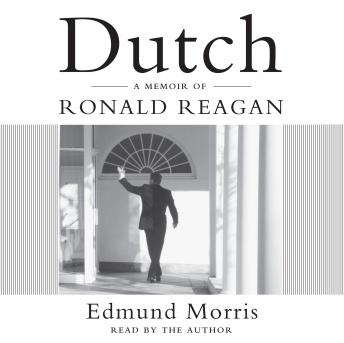- Where's The Rest Of Me
- Ronald Reagan Autobiography
- Ronald Reagan Autobiography
- Ronald Reagan Autobiography Pdf
September 30, 1999
Marks, Terri 'Ronald Reagan in Private - A Memoir of My Years in the White House.' Ronald Reagan in Private - A Memoir of My Years in the White House.
BOOKS OF THE TIMES
- Dutch, A Memoir of Ronald Reagan, Republican President Of U.S.A., 1999 1st Ed.
- This almost Boswellian closeness led to a unique literary method whereby, in the earlier chapters of Dutch: A Memoir of Ronald Reagan, Morris's biographical mind becomes in effect another character in the narrative, recording long-ago events with the same eyewitness vividness (and absolute documentary fidelity) with which the author later.
- The Dutch: A Memoir of Ronald Reagan Community Note includes chapter-by-chapter summary and analysis, character list, theme list, historical context, author biography and quizzes written by community members like you.

Where's The Rest Of Me
'Dutch': A Guy Who Wasn't There Meets the Guy Who Was
By CHRISTOPHER LEHMANN-HAUPT
| DUTCH A Memoir of Ronald Reagan. By Edmund Morris. Illustrated. 874 pages. Random House. $35. |
t comes as a shock at first. On page nine of Edmund Morris' long-awaited 'Dutch: A Memoir of Ronald Reagan' you read, in a chapter called 'The Land of Lost Things,' that the author was born in the American Midwest on Aug. 9, 1912.
This would make him 87, which does not square with the Edmund Morris we know from the book's publicity material, who is much younger, was born in South Africa and could therefore not have had the American parents he gives himself in the text, even footnoting them as being cited in several reference works.
On closer inspection you realize that Morris is coyly telling you that he is fabricating, when he writes of his birth that it 'more or less coincided with the archeological furor over Piltdown Man, while other scientists were finding that genes could be lined up along a chromosome.' He continues: 'Who knows, the latter discovery may prove as fraudulent as the former. The past is delusion, the future illusion; one locates one's center where one can. (Or in cases like Reagan's, where one wishes.)'
So why, you find yourself asking, should you believe any previously unreported details in this authorized biography, the first one ever written by someone invited to observe a sitting president? What is the difference between 'Dutch' and, say, Oliver Stone's film 'J.F.K.' or Joe McGinniss' 'The Last Brother,' a biography of Sen. Edward M. Kennedy? Why shouldn't Morris' memoir be treated as historical fiction?
But as you read on -- and such is the force and fascination of Morris' narrative that you can't help reading on -- you begin to see the benefits of his highly unorthodox technique, which turns out to be a conjoining of invention and reality.
Stephen Crowley/ The New York Times |
| Edmund Morris Related Articles |
Since Morris' partly fictional persona was born only a year later than Reagan and crossed paths with him at various points in their early careers, the author can make use of directly contemporaneous commentary instead of having to resort to speculative 'must haves' and 'may wells.'
The fluidity of the resulting viewpoints frees Morris to liven up his narrative with the devices of oral and documentary history, employing dialogues, interviews, film scenarios, epistolary sections and so forth.
For instance as a schoolmate of Reagan's at Eureka College, he reviews his subject's first known stage role, the shepherd Thyrsis in Edna St. Vincent Millay's verse drama 'Aria da Capo,' which, prophetically, centers on the building of an artificial wall between two friends, although not until 57 years later would President Reagan say, in Berlin, 'Mr. Gorbachev, tear down this wall.'
Finally, Morris' inventions lend at least the first half of 'Dutch' a faint air of make-believe, which seems entirely fitting for Reagan's rise to prominence. (In a brilliant description of his first film role, as the radio broadcaster Andy McCaine in 'Love Is on the Air,' it is difficult to tell for a while whether what he is describing is the movie or Reagan's experience.)
One might of course dismiss Morris' technique as committing the fallacy of imitative form, matching an artificial narrative with an inauthentic subject. But some would argue that Reagan's rise to fame was the contradiction of that fallacy.
Above all Morris seems at pains to animate a life that in an earlier treatment, that of Reagan's autobiography, 'An American Life,' produced what Morris himself calls 'the most boring book of its kind since Herbert Hoover's 'Challenge to Liberty.'
Certainly 'Dutch' is very far from boring. As gossip it hypnotizes: Morris has come up with the ultimate 'Hi, I'm Ronald Reagan, who are you?' anecdote when he tells how Reagan failed to recognize his own son Michael at his high school commencement.
Ronald Reagan Autobiography
Treating such delicate issues as Reagan's shift to the right politically, his conduct during the Red-hunting era in Hollywood, his relations with his wives, Jane Wyman and Nancy Davis, and the dating of his decline into senescence, the book manages to be both balanced and sensitive.
And in its coverage of the Reagan presidency it makes an oft-told tale exciting and at times, even inspiring, particularly in its vivid accounts of the various summit conferences with Soviet leader Mikhail Gorbachev.
Couldn't all this have been accomplished without Morris' narrative abracadabra? Perhaps, but I can think of few conventional political biographies that bring their subjects' pasts so richly alive.
And had he used a more conventional form, one finds it hard to imagine how he could have so effectively evolved his narrative voice from the wise-cracking irreverence of the narrator's youth to the stunned admiration of his maturer years. (Here he undetectably slows his aging process, turns himself into the middle-aged Edmund Morris we recognize from the voice of his prize-winning biography, 'The Rise of Theodore Roosevelt,' and thereby provides internal evidence of his deception, which he nowhere mentions overtly.)
Is 'Dutch' then finally flawed by Morris' technique? To judge from the book's extensive notes, it in no way distorts the record of Reagan's life, only the viewpoint from which it is told.
It is difficult to approve the technique in theory; in less skilled hands it will doubtless prove a disaster. But it certainly succeeds in this case. So call 'Dutch' a literary work instead of a biography. Besides, all biographies invent their stories, as Jay Parini pointed out recently in his 'Robert Frost: A Life.' Why not invent the inventor?
But does 'Dutch' finally penetrate the mystery of Ronald Reagan, explain the calculated spontaneity, the cold warmth, the absent presence? No, yet in passage after passage it certainly captures the paradoxes he comprised. Just one example of many:
Ronald Reagan Autobiography
'Out of Tampico's ice there grew, crystal by crystal, the glacier that is Ronald Reagan: an ever-thrusting, ever-deepening mass of chill purpose. Possessed of no inner warmth, with no apparent interest save in its own growth, it directed itself toward whatever declivities lay in its path. Inevitably, as the glacier grew, it collected rocks before it, and used them to flatten obstructions; when the rocks were worn smooth they rode up onto the glacier's back, briefly enjoying high sunny views, then tumbled off to become part of the surrounding countryside. They lie where they fell, some cracked, some crumbled: Dutch's lateral moraine. And the glacier sped slowly on.'

Like Morris' book, irresistibly.
Written in 1999 by Edmund Morris, Dutch is a biography of the fortieth President of the United States, Ronald Reagan. Though Morris wrote the book alongside Reagan, readers often note how it does not necessarily relate much to the actual term of the president, and incorporates much of Morris' personal life story into it. Dutch was published just after Morris had attained wild success from his Pulitzer Prize-winning book The Rise of Theodore Roosevelt.
Ronald Reagan Autobiography Pdf
Edmund Morris is a British and American writer. He is most well known for his biographies of the presidents, but he has received much scrutiny over Dutch, which people believe should not be considered a biography because of its inclusion of fictional character. Morris was the first person to receive authorization to write a biography of the sitting president of the time, Ronald Reagan. Morris currently writes for newspapers like The New York Times and The New Yorker.

